New Scientist covers the latest developments in science and technology that will impact your world. New Scientist employs and commissions the best writers in their fields from all over the world. Our editorial team provide cutting-edge news, award-winning features and reports, written in concise and clear language that puts discoveries and advances in the context of everyday life today and in the future.
Elsewhere on New Scientist
Spot the difference • Taking a philosophical view of the universe can help us distinguish fact from fiction
New Scientist
Starship rocket reaches orbit
Fears grow over Antarctic ice loss • Third year of low Antarctic sea ice cover raises worries an irreversible change has happened
Analysis Microbiology • What do home test kits really reveal about our gut microbiome? Many firms sell direct-to-consumer faecal testing kits, but it seems that they aren’t supported by much evidence, says Clare Wilson
Doing away with dark matter • Most physicists believe that only a quantum theory of gravity can fully explain the mysteries of the universe, but the idea of “post-quantum gravity” shows an alternative way, finds Alex Wilkins
Extreme heat could trigger the worst global financial crisis we have seen
Nvidia’s Blackwell AI ‘superchip’ is the most powerful yet
Intermittent fasting linked to a higher risk of heart disease death
Humans and sabre-toothed cats shared a mammoth meal
A new take on Fermat’s last theorem • Mathematicians plan to translate the infamous problem into a machine-readable version
Buildings could be 3D printed using ink made of waste wood
Analysis Climate-friendly food • Should we eat snakes to save the planet? Pythons convert food into meat more efficiently than other livestock and can be fed on waste meat, but this doesn’t mean eating snakes is inherently more sustainable, says Michael Le Page
Gold flecks create a new kind of one-way window
How mental health conditions seem to make you age faster
Blow dealt to hopes that Europa’s ocean hosts life
Plant-killing genetic technology could wipe out superweeds
A single meteorite created a billion craters on Mars
Brain fat linked to Alzheimer’s • Genetic risk factor for disease seems to lead to build-up of fat droplets in some cells
Chimp mothers play with their young even in tough times
US methane leaks are triple the official estimates
Sleeping black hole is way more massive than it should be
Nasal spray could help to treat MS
Many ski resorts to lack snow by 2100
City lights may have made moths evolve smaller wings
Really brief
All in your genes • As DNA testing becomes routine, will life insurance companies start using our genetic code to inform their decisions, asks Jenny Kleeman
This changes everything • Is the truth out there? A recent paper packed with delightful acronyms digs into where people report having seen UFOs, but finds no evidence of alien visitors, says Annalee Newitz
Ring of fire
Your letters
Lessons from the flood • A tour of the world’s great flood myths is a fascinating if stark warning about human hubris in ignoring our place in nature, says Eleanor Parsons
No need to panic • What is all our screen use really doing to us? A new book counters the scare stories by sticking to the science, says Chris Stokel-Walker
New Scientist recommends
The TV column • Facing it down Cixin Liu’s novel The Three-Body Problem has been turned into an eight-part series for Netflix by the Game of Thrones team. There is much to admire so far, but will the adaptation stay on track, wonders Bethan Ackerley
Strange… but true? • Theories of fundamental reality are...
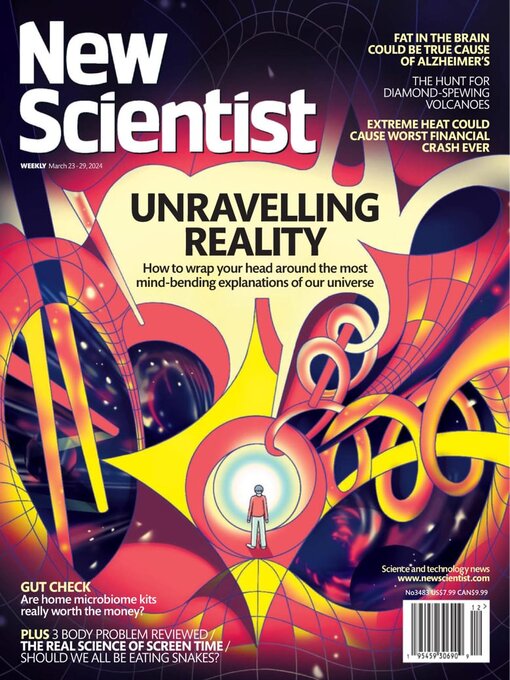
 Apr 20 2024
Apr 20 2024
 Apr 13 2024
Apr 13 2024
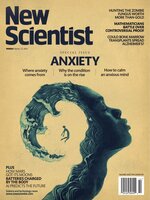 Apr 06 2024
Apr 06 2024
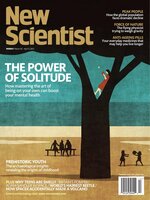 Mar 30 2024
Mar 30 2024
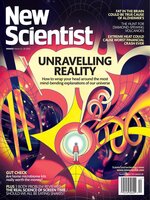 Mar 23 2024
Mar 23 2024
 Mar 16 2024
Mar 16 2024
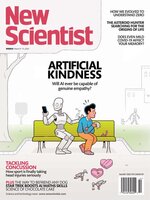 Mar 09 2024
Mar 09 2024
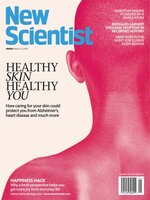 Mar 02 2024
Mar 02 2024
 Feb 24 2024
Feb 24 2024
 Feb 17 2024
Feb 17 2024
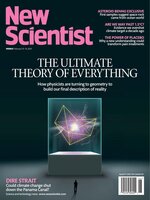 10 Feburary 2024
10 Feburary 2024
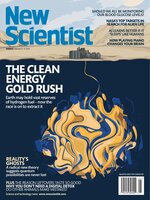 Feb 03 2024
Feb 03 2024
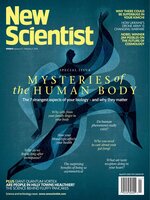 Jan 27 2024
Jan 27 2024
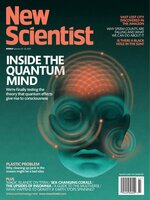 Jan 20 2024
Jan 20 2024
 Jan 13 2024
Jan 13 2024
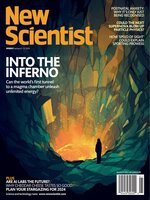 Jan 06 2024
Jan 06 2024
 Dec 30 2023
Dec 30 2023
 Dec 16 2023
Dec 16 2023
 Dec 09 2023
Dec 09 2023
 Dec 02 2023
Dec 02 2023
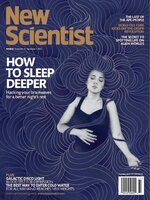 Nov 25 2023
Nov 25 2023
 Nov 18 2023
Nov 18 2023
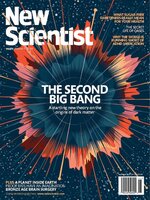 Nov 11 2023
Nov 11 2023
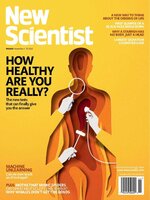 Nov 04 2023
Nov 04 2023
